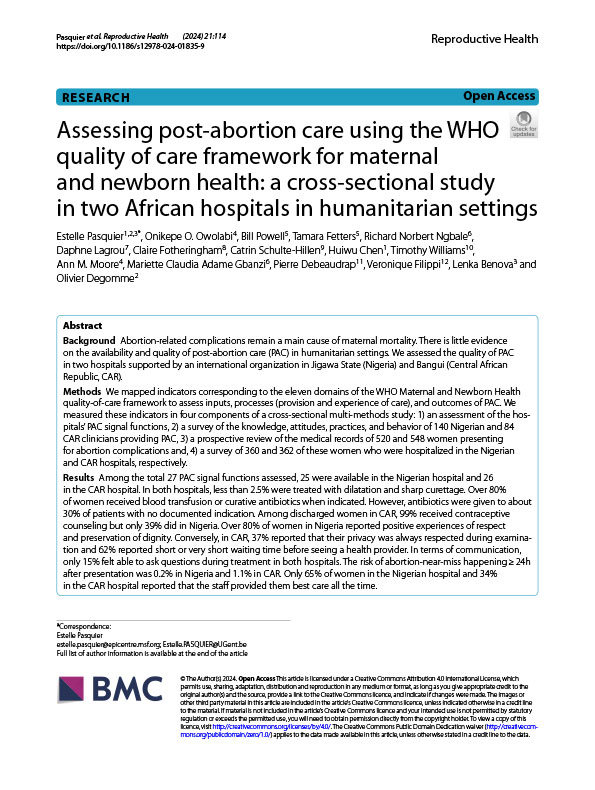
Assessing post-abortion care using the WHO quality of care framework for maternal and newborn health: a cross-sectional study in two African hospitals in humanitarian settings
In humanitarian contexts, where abortion complications are a leading cause of maternal mortality, providing quality post-abortion care (PAC) is an important part of needed services. This paper describes the quality of PAC in two hospitals supported by an international organization in Jigawa State (Nigeria) and Bangui (Central African Republic). Quality indicators were measured in four components: 1) an assessment of the equipment and human resources available in hospitals, 2) a survey of the knowledge, attitudes, practices, and behavior of clinicians providing PAC, 3) an assessment of the medical care provided by clinicians to women presenting with abortion complications and, 4) a survey of a subgroup of these women who were hospitalized. The results showed that these hospitals were providing lifesaving PAC. However, hospitals need to strengthen several aspects of care including patient-centered approach, engaging patients in their own care and ensuring privacy, short waiting times and quality provider-patient communication.
This paper is the latest from the *Abortion-related Morbidity and Mortality in Fragile and Conflict-affected Settings (AMoCo) study, a multi-year research project to assess the magnitude and severity of abortion-related complications in hospitals located in fragile or conflict-affected areas of the Central African Republic (CAR) and Nigeria. This research was conducted through a partnership between Ipas, Médecins Sans Frontières, the Guttmacher Institute and Epicentre, and the Ministries of Health in Jigawa State (Nigeria) and the Central African Republic. This research was funded by Elrha’s Research for Health in Humanitarian Crises Programme (R2HC).


